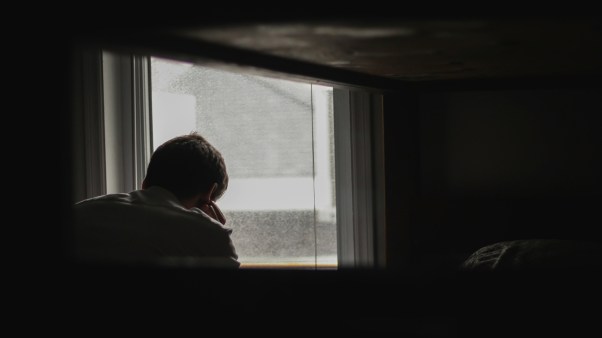Many years ago, a mentor told me, “Be careful what you teach on, because the Lord will probably make you live it as well as teach it.” This has proven true for me over the past decade as my husband and I have begun our family here in Venice, California.
For 5 of the 10 years before we married, I was a youth worker, and I taught a particular lesson to high-school students each summer. The talk, entitled “Bloom Where You Are Planted,” used passages from Genesis 12 to Jeremiah 29 to Esther to John 15 to show that God wants us to use us wherever he has “placed” us—in our families, friendships, schools, work, and communities. Our role as his people is to settle down, grow roots, and allow him to bear fruit in our lives as he sees fit.
When we moved to California from Washington, D.C., we tried to live this out first in our church decision when we deliberately chose a small eclectic neighborhood church over the city’s large evangelical ones. Seven years later, we found ourselves making the same decision for our daughter’s kindergarten.
There were good private and parochial school options in town, but we were convinced that we needed to choose to participate in the school right where we lived. We believed that God wanted us be a blessing—to bloom where we had been planted—at our neighborhood public school.
Throughout our first year at the school, I attended the monthly Parent Booster Club meetings and encountered a steep learning curve about the plight of public education here in Los Angeles and throughout the country. By year’s end, I realized that I could offer fundraising experience from youth ministry to serve the school. That’s when things took off. I went from jumpstarting our Annual Fund to overseeing all of fundraising, and am just now finishing my second year as the group’s president.
Throughout that time, I have been a part of an amazing community of educators and parents—mostly secular with a few Christians thrown in for good measure—advocating for our little school’s revitalization. And of course, ultimately we are advocating for the students—some of whose parents are not in a position with their time to be the advocates that they would surely like to be, but all of whom are the children whom Jesus welcomed to him and called us to do the same.
As part of the second-largest school district in the country, my learning curve continued. I found myself in regular meetings with our school board discussing education as this generation’s civil rights movement, and even sitting across the table from our superintendent, asking him to let our school be a role model for other neighborhood schools.
All of this culminated recently when I had the privilege to speak to the entire school board on behalf of our little school. We were asking them to reconsider a recommendation to build a new charter elementary school on the back half of our campus, because we believed that it would severely undermine our school’s revitalization and ultimately not serve our diverse group of neighborhood school kids. The board’s vote was the final decision of a year-long process, and while many people considered it a formality and a “done deal,” a few of us led the charge (petitions, emails, and so on) to ask them to overturn the decision.
It became a David and Goliath battle for our little school and for me personally, an Esther situation—”for such a time as this” (Esther 4:14). After the past several years of learning the ropes in the school district, a few of us were able to get personal conversations with “the powers that be” to continue to plead our case and at the vote, I was the lone speaker for us when the opposing side ended up with six speaker slots.
At day’s end, however, the board voted 4-3, and the recommendation was denied. Now, no one is building on our campus and we can go about the business of continuing to try to make our school the best it can be for the neighborhood students we serve.
As I look back, I can see that what began as a call to obedience for our family to be a blessing in our neighborhood has evolved into a conviction that public education is truly a place where God’s light can and does shine through his people. It is a place where advocates are needed for the “least of these”—a place where Christians can join with other citizens to give a voice to the children whose voices are not represented by the empowered adult interests. And finally, it is a place for the church to testify to God’s heart for the marginalized in a world that so often thinks of God’s people as defending the status quo. Praise God for his faithfulness and the fact that he calls us to bear fruit—to bloom where we are planted—wherever we are, in such times as these.
Sarah Reimers lives in Venice, California, with her husband and four children.







